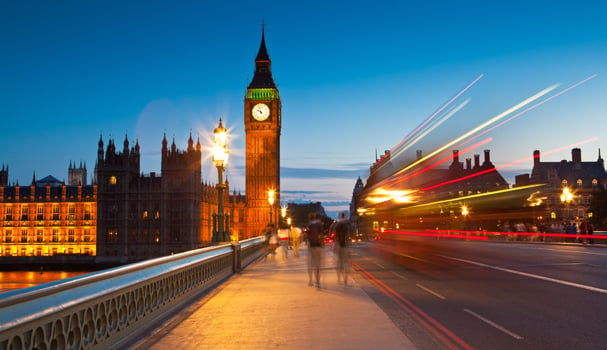Targeting banks, a ‘Google tax’ on multinationals, a £2bn boost for the NHS and measures to support the development of small businesses. Wait, is this really a Conservative-led government? We have double checked and despite appearances we can confirm that the Tories are still in the driving seat. The pre-election period is always full of surprises.
In one of the last major political events before the 2015 general election, George Osborne has delivered his autumn statement, which is geared towards helping Britain’s army of entrepreneurs. He announced that business rates relief will be doubled for a further year with discounts of 50%, meaning a possible £1,500 respite for 500,000 small businesses.
John Cridland, director-general of CBI said: “Businesses want to see a pro-growth autumn statement.” He will be happy then with Osborne’s touted growth figures of 3% this year. However, if you look ahead to the foreseeable future, growth forecasts are actually closer to 2%.
Osborne also confirmed a £900m lending scheme for SMEs from the Bank of England and the HM treasury after the Funding for Lending scheme (FLS) was extended by a year to provide help for small businesses where it is needed most.
While there was no mention of tax relief for the poorest in the UK, he introduced a 25% tax rate for multi-national businesses and their profits in the UK, which – although still low – is expected to generate £1bn over the next five years. So no more tax dodging for the likes of Amazon, Google, Facebook and Starbucks then? Not so fast. Critics are already questioning the practicalities of how monitoring profits from sales can really be monitored by multi-national companies when the profits are being artificially shifted out of the UK, intensifying the calls for an international clamp down and clear rules on taxing large corporations.
What do SMEs think?
SMEs have generally been more welcoming of the announcements. “Overall the chancellor’s statement holds some very positive points for SMEs, particularly the acknowledgement that current tax laws are overly complicated and cause unnecessary administration difficulties and costs for small businesses,” says Darren Fell, MD and founder of Crunch Accounting. “However, while Osborne promised to simplify tax, he made no mention of the issues that have recently arisen with the introduction of VAT MOSS and said nothing of a threshold placed on tax laws that could unfairly hinder microbusinesses.”
“I sincerely hope he addresses these issues in the near future as many small digital businesses may be negatively affected,” Fell added.
Other measures included abolishing National Insurance for young apprenticeships, which will greatly benefit businesses those relying on apprenticeship schemes. Research and development tax credits are set to be increased for SMEs, which will promote innovation throughout the UK’s research businesses. Fuel duty, usually considered a great source of revenue for previous chancellors, will be frozen. This will be a welcome relief for many businesses transporting goods.
Although Osborne insists his “long-term economic plan is working,” the spectre of the deficit haunts the entire statement. The government had hoped to eliminate the deficit by the end of this parliament but borrowing this year could be as high as £95bn. This is about £9bn more than the chancellor forecast in the March budget.
Understandably, there was some backlash. “This year’s autumn statement was a missed opportunity for government to support SMEs that form the bedrock of the UK economy,” says Jason Stockwood, CEO of Simply Business. “These firms, which make up the silent majority of the country’s small businesses, have been ignored for too long by a coalition that prefers instead to focus almost exclusively on tech firms cloistered away in a small part of East London.”
However, not even the Shoreditch techies, who do a lot for the UK economy, should be over the moon. Brendan Flattery, CEO of Sage UK and Ireland, said: “While many of these measures are welcome, what was missing from the chancellor’s statement is investment in technology infrastructure.”
“Infrastructure investment needs to go beyond the physical realms of road and rail. More high-speed broadband and greater 4G mobile coverage across the country will make it easier and quicker for tens of thousands of businesses to grow their businesses and bring in new and more efficient ways of working,” Flattery added.
On the whole, this autumn statement has much to offer SMEs but with economic uncertainty and low wages denting businesses’ revenues, only time will tell how much the nation’s entrepreneurs will benefit. ![]()
Share via:








































